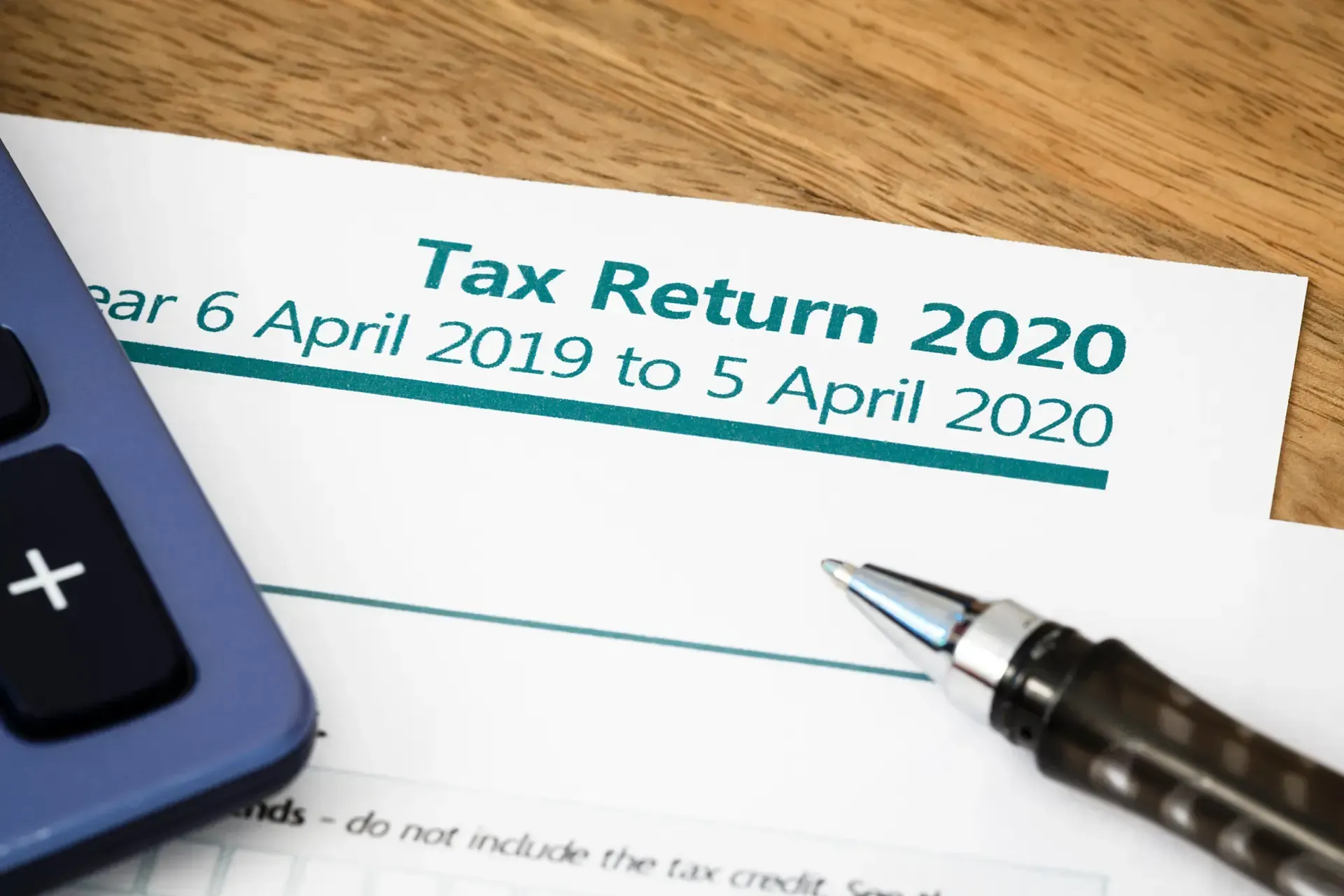Blog

The Worldwide Disclosure Facility (WDF) is a program set up by HMRC to help people and businesses follow the rules for taxes on money from outside the UK. If you have income or money from other countries that you haven't told HMRC about before, this program gives you a chance to fix your tax situation and make sure you're following the law. Key Points: Worldwide Disclosure Facility Opportunity for UK taxpayers to tell HMRC about offshore issues they didn't report before Covers tax years up to and including 2022-2023 It gives you 90 days to tell HMRC everything after you let them know you want to use the facility Works for people living in the UK and those living elsewhere who need to pay UK taxes It could mean that you pay less in fines compared to if HMRC found out on their own What is the Worldwide Disclosure Facility? The Worldwide Disclosure Facility is a way for people and companies to tell HMRC about money or things they own in other countries that they should have paid UK tax on but didn't. This includes money from houses in other countries, money from investments abroad, and gifts or inheritances from people in other countries that you didn't tell HMRC about before. Who can use the Worldwide Disclosure Facility? The WDF is for anyone who wants to disclose a UK tax liability wholly or partly related to an offshore issue. This includes unpaid or omitted tax related to the following: Income arising from a source in a territory outside the UK Assets situated or held in a territory outside the UK Activities carried on wholly or mainly in a territory outside the UK Funds connected to unpaid or omitted UK tax that you have transferred to a territory outside the UK A common misconception that UK resident and non-domiciled taxpayers are unaware of is, that a UK tax liability arises on: Rental income from property located outside the UK If you’re not resident in the UK, you can still make a disclosure if you meet the eligibility criteria. The WDF may not cover 22/23 as you are still within time limits to submit an amended tax return (deadline is 31 January 2025). Why Use the Worldwide Disclosure Facility? Using the WDF can help you avoid bigger fines and possible criminal investigation that could happen if HMRC found out about your overseas money on their own. It's a way to be honest about your taxes from other countries and get back on track with what HMRC requires. It's ok to have investments in other countries, but not telling HMRC about the money you make from them is against the law. The WDF gives you a chance to fix this mistake and show that you want to follow the tax rules. How to Respond to HMRC Nudge Letter HMRC identifies those who need to make a tax disclosure and sends them a nudge letter based on data they have obtained. If you’ve received a nudge letter, HMRC has identified a potential issue in your UK tax affairs. Rather than ignoring this, it's best to seek advice from a tax professional to ensure compliance with your offshore tax affairs. We can assist you in finding irregularities in your offshore affairs before making a disclosure through the WDF. It’s important to seek professional advice and take careful consideration before responding to a nudge letter, as making a false declaration can lead to serious consequences. How Does the Disclosure Process Work? The WDF process has several important steps: Notify HMRC that you want to make a disclosure. This means letting them know you want to use the facility. To register, use the Digital Disclosure Service. You’ll need some key information such as your address, DOB, and National Insurance to notify and disclose. On receiving your unique Disclosure Reference Number (DRN), you must make your disclosure within 90 days after getting the notification acknowledgement. If your disclosure is prompted by a letter from HMRC, you’ll need to state this in the disclosure. Depending on your reasons for not disclosing your tax liability, the penalties will vary. If you’re unsure on the self-assessing behaviour option that applies, seek professional advice. Figure out how much tax, interest, and penalties you owe. You’ll need to disclose any unreported income or gains, as well as the associated tax, interest and penalties. You might need help from a professional for this part. Tell HMRC everything within 90 days of receiving the unique DRN from them. You need to include all the important information about your money and things you own in other countries. Offer to pay the full amount you owe or agree to the HMRC terms to pay it over time, using your Payment Reference Number (PRN). It's really important to be thorough, honest, and clear when you're telling HMRC everything. They can check the information you give them, and if you don't tell the truth or leave things out, you could get in big trouble. The 90-day window to tell them everything is strict, so start gathering all the information you need as soon as you decide to use the WDF. What Penalties Might I Face? If you’re not following offshore tax rules, HMRC takes this very seriously. However, if your disclosure is unprompted, you could reduce the penalties you are liable for. Your penalty amount is based on whether it was a mistake, if it was deliberate or not, and how long you didn’t follow the rules. The Benefits of Disclosing through the WDF Voluntarily sorting out your tax affairs can provide many benefits. HMRC prefers when you come forward rather than having to be tracked down by them. This can prove that you are responsible in your tax affairs. Also, you could potentially reduce the penalties by coming forward, and reduce the number of years assessed. What Should I Look Out For? When using the WDF, there are some important things to remember: Make sure to tell HMRC about everything - if you leave things out, you could get bigger fines and HMRC might investigate you more. Remember to include the interest you owe on unpaid tax when you're figuring out how much to pay. Think about getting help from a professional, especially if your tax situation is complicated or involves many countries. Be ready to show proof of everything to HMRC. This might include bank statements, investment records, and documents about properties you own. Remember that HMRC can look into your finances from up to 20 years ago for serious cases. Know that if you didn't follow the rules on purpose, you could be in really big trouble. Being honest when you use the WDF can help avoid this. If you're not sure about anything when using the WDF, it's a good idea to ask a tax expert for help . They can guide you through the process and make sure you're doing everything right. Conclusion The Worldwide Disclosure Facility is an important tool for people and businesses who need to fix their offshore tax situation. While it might seem scary to tell HMRC about money or gains you didn't report before, using the WDF is usually much better than risking HMRC finding out on their own. It's worth knowing that many countries now share financial information automatically, so it's much more likely that HMRC will find out about offshore money that has yet to be reported. It's important to know that telling HMRC everything can be complicated, especially if you have money in different countries. In these cases, it's a good idea to get help from a tax professional to make sure you're telling HMRC everything they need to know correctly. At Walji, we can offer specialist advice on your tax affairs and help you with your disclosure. To apply for a callback, please fill in our contact form and we’ll be sure to get back to you.

As a landlord, it's important to keep up with your taxes. The Let Property Campaign (LPC) helps those who might have forgotten to report all their rental income. Let's look at what this means for you and how to make sure you're doing everything right. Key Points The Let Property Campaign is a programme for landlords to report missed rental income It often has lower penalties than if HMRC finds out on their own It's for different types of rentals, including UK and overseas properties You have 90 days to figure out and pay taxes after telling HMRC It's better to tell HMRC yourself to avoid bigger problems later What is the Let Property Campaign? The Let Property Campaign is a service by HM Revenue and Customs (HMRC) to encourage residential property landlords to straighten out their taxes. It helps landlords fix their taxes if they haven’t reported all their rental income beforehand. This programme gives landlords a way to come forward, report any unpaid taxes, and follow the tax rules properly. If you haven't disclosed your rental income, you may have received a nudge letter from HMRC. This letter is to notify you to come forward through the Let Property Campaign to disclose your taxes, and ensure you don’t end up with bigger penalties or face criminal investigation. Who is eligible for the Let Property Campaign? The LPC is for many types of landlords, if you are: Renting out one or more properties Renting out holiday homes Renting out rooms in their own home Those who have inherited a property and are renting it out UK residents renting out properties in other countries Non-UK residents renting out UK properties If you're one of these and haven't reported all your rental income, the LPC can help you fix your taxes. It's especially helpful if you didn't know you had to report everything or if you fell behind by accident. The LPC is not for landlords who: Have non-residential properties like shops, garages or lockups, etc. Want to disclose income on behalf of a trust or company How to make the Let Property Campaign Disclosure 1. Tell HMRC First, you need to tell HMRC you want to report your income. You can do this online through the Digital Disclosure Service (DDS) . After you notify HMRC, you have 90 days to make your disclosure. This first step is important because it shows you want to cooperate. 2. Collect Information Use this time to gather all your financial records about your rental income from your property. This includes: Details about you and when you bought the property Details about the property The total rental income for each year (not declared to HMRC) You don’t need to include income which you’ve told HMRC about (previously declared in a tax return) Work out allowable expenses incurred on income (day-to-day money spent) Deduct allowable expenses from income to determine taxable profit Being thorough here will help make sure your report is correct and complete, which can prevent problems later. Read our blog post to learn more about expenses landlords can claim . 3. Calculate Taxes Once you’ve worked out the additional rental income you need to figure out how much tax you owe. The rates of income tax that you’ll pay depend on how much you earn above the Personal Allowance. 4. Submit and Pay Once you've calculated the amount of tax you owe, you need to make a formal offer for the full amount to HMRC. Essentially you need to complete the disclosure and provide details of the rental income not declared to HMRC. Once your offer is met with an acceptance letter, it will create a legally binding contract between you and HMRC. You'll need to pay the taxes you owe, plus any interest and penalties before the 90-day deadline on your notification acknowledgement letter. If you can't pay it all at once, you need to speak to HMRC before submitting your disclosure or payment. How many years are included for the disclosure in the LPC? It depends. HMRC will ask the reason why you didn’t declare, whether it was deliberate or not. Depending on how many years you have not reported income from your property, this can range from four to 20 years. Understanding Let Property Campaign Penalties While the LPC has better terms than if HMRC investigates you, there are still penalties. The exact penalty will depend on things like: How long you didn't report the income Why you didn't report it How helpful you are during the process Whether you didn't report on purpose or by mistake Penalties can be from 0% for honest mistakes to up to 100% of the tax owed for hiding income on purpose. But by coming forward through the LPC, you'll likely face lower penalties. How HMRC finds unreported Income HMRC has smart ways to find unreported rental income. Their system, called "Connect", gets information from many places, including land registry records, letting agencies, local councils, bank and credit card transactions etc. This makes it more likely that unreported income will be found, showing why it's important to report yourself. HMRC keeps getting better at this, making it harder for landlords who don't report to stay hidden. Staying on top of taxes in the future After joining the Let Property Campaign, it's important to keep following tax rules. This includes: Keeping good records of all rental income and expenses Sending in Self Assessment tax returns on time Staying informed about changes in tax laws for landlords Regularly checking your tax situation to make sure you're still following the rules Thinking about using property management software to help keep records Download a free book (from our Partner Reza Hooda) to answer all your property tax questions. Conclusion The Let Property Campaign gives landlords a chance to fix their taxes and avoid big problems. By choosing to report unreported rental income yourself, you can get lower penalties and peace of mind. Since tax laws can be tricky, especially for property owners, it's often a good idea to get professional advice. This helps make sure you're following current rules and are ready for future changes in property taxes. At Walji, we can offer specialist advice on your property situation. To apply for a callback, please fill in our contact form and we’ll be sure to get back to you.















































